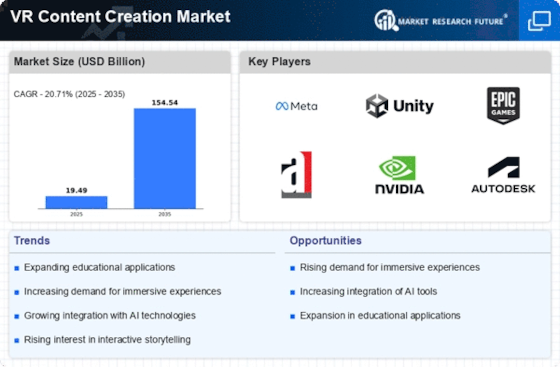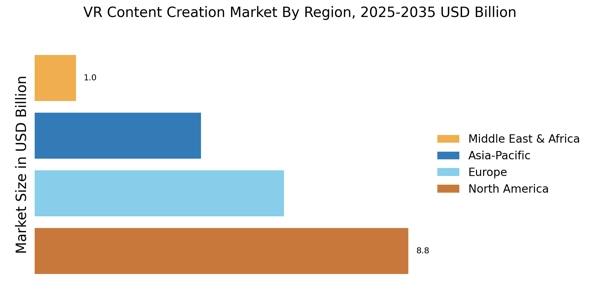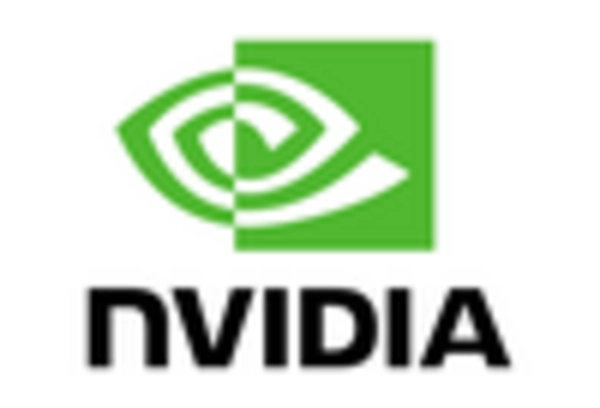Advancements in VR Technology
The VR Content Creation Market is experiencing rapid advancements in technology, which significantly enhances the quality and accessibility of VR content. Innovations in hardware, such as improved headsets and motion tracking systems, are making it easier for creators to produce immersive experiences. For instance, the introduction of 8K resolution displays and haptic feedback systems allows for a more engaging user experience. Furthermore, software developments, including user-friendly content creation tools, are lowering the barrier to entry for new creators. As a result, the market is projected to grow at a compound annual growth rate of approximately 30% over the next five years, indicating a robust demand for high-quality VR content.
Expansion of VR in Healthcare
The application of VR technology in healthcare is emerging as a vital driver for the VR Content Creation Market. Medical professionals are increasingly using VR for training, patient treatment, and therapy. For example, VR simulations are being employed to train surgeons, allowing them to practice complex procedures in a risk-free environment. Additionally, VR is being utilized in therapeutic settings to treat conditions such as PTSD and anxiety disorders. The healthcare sector's growing acceptance of VR solutions is projected to contribute significantly to the market, as the demand for specialized content tailored to medical applications continues to rise.
Increased Investment in VR Startups
Investment in VR startups is on the rise, which is a crucial driver for the VR Content Creation Market. Venture capitalists and tech companies are recognizing the potential of VR technology and are funneling resources into innovative startups focused on content creation. In 2025, investments in VR-related ventures have surpassed 2 billion dollars, indicating a strong belief in the future of VR content. This influx of capital not only supports the development of new technologies but also encourages competition, leading to better products and services in the market. As more startups emerge, the diversity and quality of VR content are likely to improve.
Rising Demand for Immersive Experiences
Consumer preferences are shifting towards immersive experiences, driving growth in the VR Content Creation Market. Industries such as entertainment, gaming, and tourism are increasingly adopting VR to enhance user engagement. For example, the gaming sector has seen a surge in VR titles, with sales reaching over 1 billion dollars in 2025. This trend is not limited to entertainment; educational institutions are also leveraging VR to create interactive learning environments. The demand for immersive experiences is expected to continue rising, as consumers seek more engaging and interactive content, thereby propelling the VR content creation sector forward.
Integration of VR in Marketing Strategies
The integration of VR into marketing strategies is becoming increasingly prevalent, significantly impacting the VR Content Creation Market. Brands are utilizing VR to create unique marketing campaigns that engage consumers in novel ways. For instance, virtual showrooms and immersive advertisements allow customers to experience products before making a purchase. This trend is particularly evident in the retail sector, where companies are investing in VR experiences to enhance customer engagement. As businesses recognize the effectiveness of VR in driving sales and brand loyalty, the demand for VR content creation is expected to grow, further expanding the market.




















